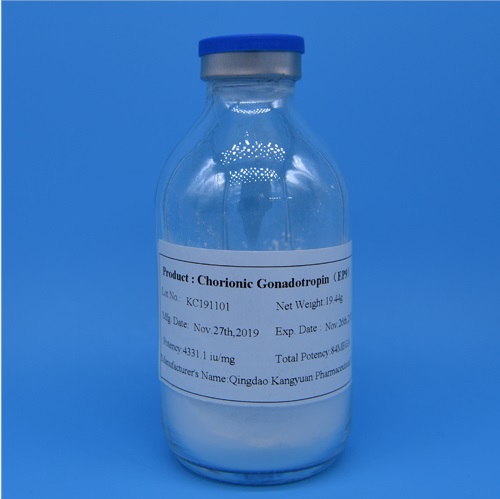In the intricate world of pharmaceuticals, finding a dependable Urokinase
API supplier is of paramount importance. Whether you're involved in the
production of thrombolytic medications or conducting research in the field of
cardiovascular health, the quality and reliability of your Urokinase API source
can significantly impact your outcomes. Here are the essential questions you
should ask when considering a supplier.
What is the Quality Assurance Process?
A reputable Urokinase API supplier will have a stringent quality assurance
system in place. This begins with the sourcing of raw materials. They should
have strict criteria for selecting suppliers of the starting materials to ensure
their purity and suitability. The production process should adhere to Good
Manufacturing Practices (GMP), with multiple checkpoints for quality control.
Sophisticated analytical techniques such as high-performance liquid
chromatography (HPLC) and enzyme activity assays should be used to monitor the
purity, potency, and stability of the Urokinase API at every stage. This ensures
that the final product meets the highest standards and is safe and effective for
its intended applications.
How is Regulatory Compliance Handled?
Compliance with regulatory requirements is non-negotiable. The supplier
should possess all the necessary licenses and certifications to operate legally.
They should be well-versed in international and local regulations governing the
production and sale of pharmaceutical APIs. This includes meeting the standards
set by agencies like the FDA (Food and Drug Administration) and the EMA
(European Medicines Agency). Regular audits by regulatory bodies and internal
compliance checks are signs of a supplier that takes its responsibilities
seriously and can provide you with the assurance that the Urokinase API you
receive is compliant with all relevant regulations.
What is the Production Capacity and Scalability?
Consider your current and future needs. A reliable supplier should have the
production capacity to meet your demands, whether you require small quantities
for research purposes or large volumes for commercial production. They should
also have the ability to scale up production quickly and efficiently if your
requirements increase. This flexibility is crucial in ensuring a seamless supply
chain and avoiding disruptions in your operations.

How Do They Handle Supply Chain Disruptions?
In today's volatile global market, supply chain disruptions can occur due
to various factors such as natural disasters, political instability, or
pandemics. A good Urokinase API supplier will have contingency plans in place.
This could include alternative sourcing strategies for raw materials, redundant
production facilities in different locations, and strong relationships with
logistics partners to ensure timely delivery even in challenging circumstances.
Their ability to manage and mitigate supply chain risks will give you peace of
mind and safeguard your business operations.
What Technical Support and After-Sales Service Do They Offer?
Beyond just supplying the Urokinase API, a quality supplier will provide
technical support. This could involve assistance with formulation development,
helping you optimize the use of the API in your products. They should also offer
prompt and efficient after-sales service, addressing any concerns or issues you
may have with the product. Good communication channels and a responsive customer
service team are indicators of a supplier that values its customers and is
committed to long-term partnerships.
In conclusion, choosing the right Urokinase API supplier requires careful
consideration of these factors. By asking the right questions and conducting
thorough due diligence, you can identify a supplier that not only meets your
immediate needs but also supports your long-term growth and success in the
pharmaceutical industry. Remember, the quality and reliability of your API
supplier are integral to the quality and effectiveness of your final products,
and ultimately, to the well-being of the patients who rely on them.